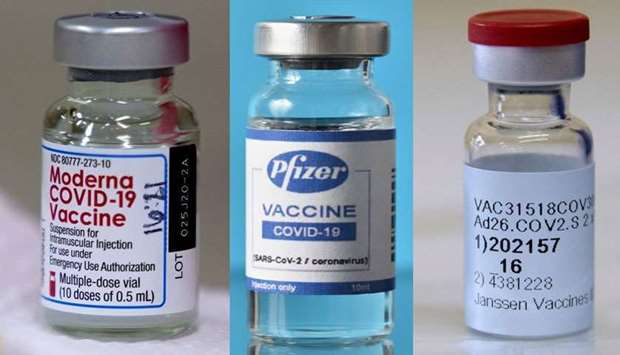India is to fast-track emergency approvals for Covid-19 vaccines that have been authorised by Western countries and Japan, paving the way for possible imports of Pfizer, Johnson & Johnson, and Moderna shots.
The move, which will drop the need for companies to do small, local safety trials for their vaccines before seeking emergency approval, follows the world’s biggest surge in cases in the country this month.
India has the biggest vaccine manufacturing capacity in the world and had exported tens of millions of doses before its own demand skyrocketed and led to a shortage in some states.
Its need for imports would be a blow to dozens of poor countries that had relied on the country to run their inoculation drives.
India’s health ministry said vaccines authorised by the World Health Organisation or authorities in the US, Europe, the United Kingdom and Japan “may be granted emergency use approval in India, mandating the requirement of post-approval parallel bridging clinical trial”.
“If any of these regulators have approved a vaccine, the vaccine is now ready to be brought into the country for use, manufacture and fill-and-finish,” Vinod Kumar Paul, a senior government health official, told a news conference.
“We hope and we invite the vaccine makers such as Pfizer, Moderna, Johnson & Johnson and others...to be ready to come to India as early as possible.”
Pfizer said it would work towards bringing its vaccine to India after withdrawing its application in February.
India has administered more than 108mn doses, sold more than 54.6mn vaccine doses abroad and gifted more than 10mn to partner countries.
It is currently using the AstraZeneca shot and a homegrown vaccine for its own immunisation drive, and this week approved Russia’s Sputnik V shot for emergency use.
Since April 2, India has reported the world’s highest daily tallies of infections, exceeding 100,000 for the first time last week. It reported 161,736 cases on Tuesday, taking the total to 13.7mn.
Deaths rose by 879 to 171,058.
The jump in infections, for which Health Minister Harsh Vardhan acknowledged widespread failure to heed curbs on movement and social interaction, has prompted calls for the government to cancel huge public events. Concerns of a spike in cases were sparked by mass election rallies by Prime Minister Narendra Modi’s party and opposition groups during polls in four states and one federally run region.
At one rally in the eastern state of West Bengal, a key political prize, Home Minister Amit Shah posted Twitter pictures of meetings with crowds of supporters while unmasked.
The second wave of infections, which began in India’s major cities, is increasingly spreading into the hinterland, where healthcare facilities are often rudimentary.
In Raipur, the capital of Chhattisgarh state known for its large tribal population, the main government hospital’s morgue was struggling to keep up, said joint director Dr Vineet Jain.
“All oxygenated and ICU beds are full in our set-up,” he said. “Around 50 dead bodies are laying, we have a shortage of space.”

all vaccines
